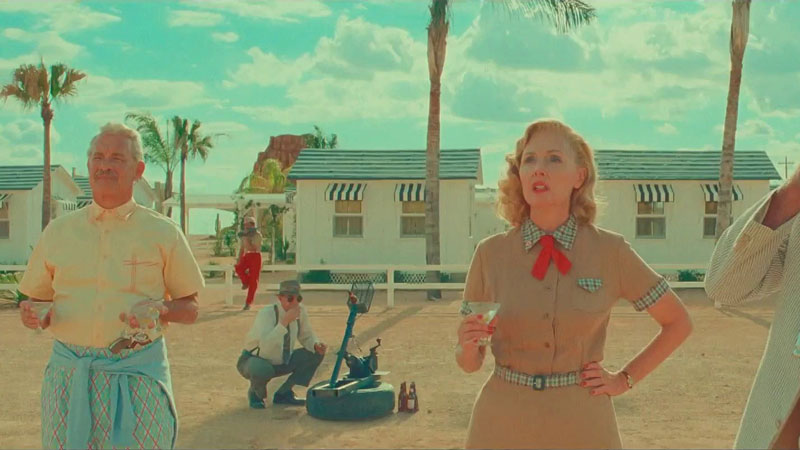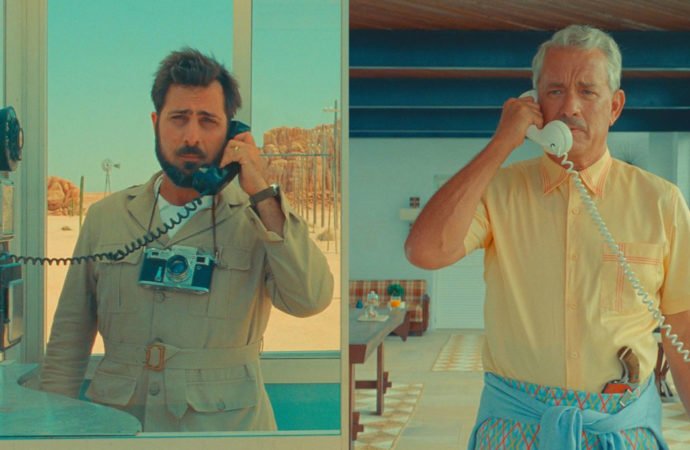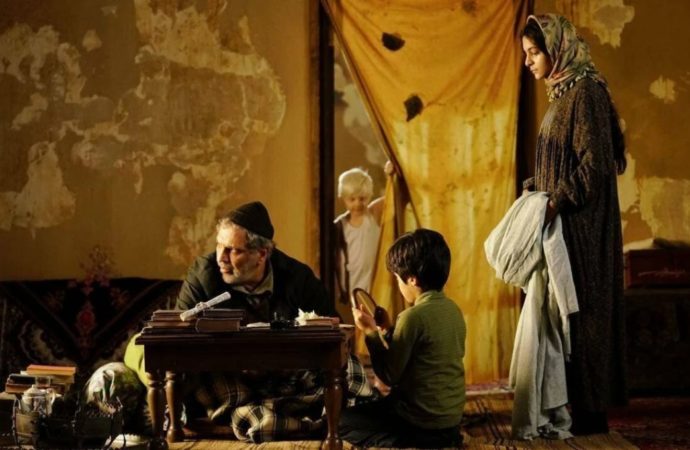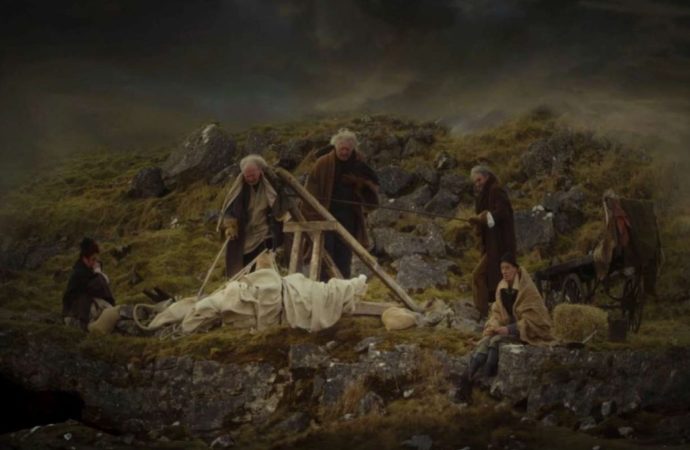When the visual identity of a film is that of almost an entire filmography, and is the essence of what we are seeing, as in the case of Asteroid City, we are talking about a priority for great directors in the history of cinema, sometimes to enjoy recognising ourselves in familiar territory, sometimes to look away exhausted. When formulas are exhausted because their core is sterile aestheticism, we must undoubtedly refer to Wes Anderson. If his previous film, which also premiered at the Cannes Film Festival, explored in various tableaux vivants a France recreated within an imaginary and nostalgic spatio-temporal framework, Asteroid City shares with it the lack of a purpose beyond mere illustration.
And what is illustrated here? A new (as in repetitive, not innovative) pop repertoire, with a list of performers that would occupy several lines headed by Jason Schwartzman, playing Augie Steinbeck (a recently widowed war photographer), Scarlett Johansson (the actress Midge Campbell) and Tom Hanks (Augie’s father-in-law and grandfather of his four children). This mosaic of small stories, around a competition for young physics talent, is not set this time on the Darjeeling train, nor the Budapest Hotel or an island inhabited by boy scouts, but in a southern American desert with atomic mushrooms emerging on the horizon.

Asteroid City (Wes Anderson, 2023).
With the premise of a story within a story, as we saw in an episode of his previous film, a television presenter (Bryan Cranston), introduces us in black and white to the intricacies of a play, first in the writing phase, where the author Conrad Earp (Edward Norton) creates the plot, and later on the stage with its director Schubert Green (Adrien Brody) and his marital problems, where the author Conrad Earp (Edward Norton) creates the plot, and later on stage with his director Schubert Green (Adrien Brody) and his marital problems, assembling a cast from a copy of the Actors Studio, directed by Saltzburg Keitel (Willem Dafoe) to move us in a third stage to a colourful space and extraterrestrial adventure full of characters flatter than a bumper sticker. The nods pile up and draw on our visual memory and pop imagery from the roadrunner, to Jeff Goldblum‘s character in Earth Girls Are Easy, where he first played an alien, to even reaching Lee Miller in Hitler’s bathtub – maybe I’m a bit too far off the mark here, but considering that Augie, a war photographer, portrays his wife (Margot Robbie) it might not be far-fetched.
Anderson’s films are dioramas, where extras and set operate on the same level, imbued with the same chromatic palette, and where almost every character suffers from a radical personality, the consequences of which determine the interaction and have more or less fascinated us in the past. However, the rigidity and schematism have been stylised over the course of his latest films, in which the plastic appeal has been reinforced by the weakness of the other elements. If we were previously able to empathise or simply sympathise with his characters —or even detest them— it was because we cared about their dilemmas, reactions, weaknesses, while it is increasingly difficult for us to find the slightest interest in them. Now we are moved by curiosity (or not even that anymore) for a new album, for its context, but not even the rain of stars is a promise that fulfils our expectations, we limit ourselves to observe as if we were in front of a huge Christmas window.
If the 1970s disaster films brought together massive star casts, full of Oscar-winning actors, including golden Hollywood glories in million-dollar cameos, Wes Anderson’s films are a string of regulars parading new and shocking characterisations, offering their talent to the altar of posturing where their obvious effort would deserve a better fate. Iconography that is born and dies in the same cradle, with a one-dimensional vocation, such as that which crams Asteroid City can never exhibit the soul it lacks, just as dollhouses can never take on a life of their own. Wes Anderson’s fiction has devolved, or rather atrophied, but worst of all, it bores us to death.









No one has posted any comments yet. Be the first person!